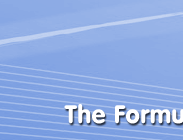      |
|
Contact us at: sooddram@gmail.com |
Canada
OK's most Sri Lankan refugee claims
(By David McKie, CBC News)
The refugee board accepted 85.5 per cent of Sri Lankans claiming
refugee status in Canada during the first six months of 2010 - a rate that is
on the high end among countries. The refugee board accepted 85.5 per cent of Sri Lankans claiming
refugee status in Canada during the first six months of 2010 - a rate that is
on the high end among countries. An analysis by CBC News of numbers released by
the Immigration and Refugee Board of Canada showed 345 Sri Lankan claims were
accepted in six months, while 50 were rejected. Another 705 claims from that
period are waiting to be processed.
Most accepted (2010)
|
Country |
Acceptance rate |
|
Eritrea |
93.8% |
|
Djibouti |
92.1% |
|
Ethiopia |
91.8% |
|
Uganda |
89.7% |
|
Burundi |
87.2% |
|
Afghanistan |
85.5% |
|
Sri Lanka |
85.5% |
|
Sudan |
82.6% |
|
Rwanda |
82.6% |
|
Zimbabwe |
80.2% |
*Data from January to
June, 2010.
Only six countries had
higher acceptance rates, with Eritrea at the top of the list with 93.8 per cent
of claimants accepted. Afghanistan had only a slightly higher acceptance rate
than Sri Lanka.
The board avoids
speaking about individual cases, and would only say that acceptance rates
indicate the claimants were able to prove that a return to their original
country could get them killed.
Immigration lawyers
and human rights advocates say most of the Sri Lankan claimants Canada
processes are Tamil. They say the high number of claims accepted speaks to the
dire situation in Sri Lanka, which was embroiled in a bitter civil war until
May 2009.
"Most of the
people who came during that period were found to meet the refugee
definition," said Sean Rehaag, a professor at Osgoode Hall Law School.
He said even though
the armed conflict has ended in Sri Lanka, there are still credible allegations
of human rights abuses against Tamils in the country. He said Amnesty
International, Human Rights Watch and the U.S. Department of State have all
confirmed these allegations.
We've posted an online
database of Immigration and Refugee Board numbers. Scroll through to see
the acceptance rates for different countries.
"These people are
asylum seekers, and they're entitled to a fair hearing where the [Immigration
and Refugee Board] will determine if they meet the refugee definition. And if
they do, they will be provided with refugee protection in Canada."
Canada's high
acceptance of Sri Lankans has held true for several years.
In 2009, the board
approved slightly more than 91 per cent of Sri Lankan claimants, making that
country's acceptance rate the second highest. In 2008, Sri Lankans had the
highest acceptance rate.
Targeting human smugglers
The CBC's analysis
comes as the federal government is pondering ways to crack down on human
smugglers and traffickers from countries such as Sri Lanka.
The government's
interest in the issue stems from the August arrival of a migrant ship carrying
492 Sri Lankans. In October 2009, a smaller boat carrying Tamils arrived off
the coast of Vancouver. The fear with the arrival of these ships is that human
smuggling is involved.
"What really
concerns me from a humanitarian point of view, is that
some of the people can't pay up front in cash for their voyage and so they end
up indenturing themselves to pay off the syndicate once they're settled in
Canada," Immigration Minister Jason Kenney said recently. "This is
when smuggling becomes trafficking."
How we did it
In order to rank the
acceptance rate, we've excluded countries that produced less than 10 refugee
claimants for any given period.
For instance, during
the first six months of 2010, Azerbaijan, Bolivia, Central African Republic,
Niger, Papua New Guinea, Qatar, Singapore, all had acceptance rates of 100 per
cent, but Canada only processed between one and three claimants from each
country.
By comparison, Canada
finalized 405 Sri Lankan claims, including 10 that were abandoned or withdrawn.
Aid workers and
immigration lawyers say the government is using the arrival of the migrant
ships as a way to further its tough-on-crime agenda, instead of reminding
people that the immigration and refugee determination process was designed, in
part, to deal with people arriving at Canada's shores, fleeing for their lives
and seeking asylum.
As the Immigration and
Refugee Board statistics indicate, most of the asylum seekers from Sri Lanka
are deemed legitimate by Canada.
"I am troubled by
the way that the government hasn't explicitly acknowledged that what we're
talking about is asylum seekers," said Rehaag.
"It's not just a question of stopping shady criminal organizations that
are taking advantage of migrants."
He said the government
needs to explain that Canada's refugee determination system is a balancing act
between keeping borders safe and upholding the rights of those who arrive in
Canada with legitimate claims.
"The people who
are on board these ships are refugee claimants from a country that is known to
engage in systemic human rights abuses," Rehaag
said. "I think that's an important part of the conversation that is not
being publicly addressed by the government."
Least accepted (2010)
|
Country |
Acceptance rate |
|
Czech Republic |
1.81% |
|
Hungary |
0.52% |
|
U.S.A. |
0.38% |
|
Croatia |
0.00% |
|
France |
0.00% |
|
Hong Kong (SAR) |
0.00% |
|
Portugal |
0.00% |
|
Slovak Republic |
0.00% |
|
Spain |
0.00% |
|
Thailand |
0.00% |
*Data from January to
June, 2010.
Kenney says migrants
looking to escape danger should apply for refugee status from their own
countries, or safe third-party countries.
Between 2006 and 2009,
a yearly average of 11,273 refugee claims made from abroad were referred to the
Immigration and Refugee Board, as the Canadian government prefers, compared to
a yearly average of 29,924 referrals from within Canada.
The number of claims
made from within and outside Canada gradually increased during the period of
the CBC analysis. The numbers clearly show that the majority of claimants ask
for asylum once inside the country, a trend experts say will remain whether the
immigration minister likes it or not. Still, Kenney insists claimants should
apply for asylum closer to home.
"I think we have
a humanitarian obligation to say if you're a bona fide refugee find an
alternative in your region, go to the [United Nations Commissioner for Refugees],
but don't pay someone $50,000 to get in a leaky boat and risk your life to come
across the Pacific Ocean. That's not the right way to do this. And that's the
message we need to send."
Immigration lawyer
Richard Kurland said he agrees the government should work hard to make it
easier for claimants to apply for refugee status either in their home countries
or so-called safe third countries.
But Kurland points out
that most claimants, like the recent boatload of Sri Lankan asylum seekers,
would risk a perilous and uncertain boat ride across the Pacific Ocean rather
than claiming status in Sri Lanka where they may have to wait years to have
their claim heard and be killed in the process.
"There's a
difference between theory and facts on the ground," Kurland said. "If
it's [the choice] between a bullet and boat, I [would] go for the boat."
Above average
The Sri Lankan numbers
trend high above the average rate of acceptance for refugee claims, which, in
the first six months of 2010, were slightly more than 40 per cent above the
average. Between 2006 and the middle of 2010, the years CBC analyzed, the
acceptance rate for Sri Lankans was always much higher - at least 30 percentage
points - than the average.
Still, the government
seems determined to do something. Reports emerged recently that the government
was possibly entertaining the option of detaining people for about two weeks,
instead of the usual 48 hours, before having the legal right to an oral hearing
before the Immigration and Refugee Board. Prime Minister Stephen Harper
reportedly vetoed the proposal.
"The idea that
you would put someone in jail for two weeks, says Rehaag,
"is problematic from a human rights perspective."
Gloria Nafziger, the refugee co-ordinator
for Amnesty International Canada, said many of the claims the government hears
are compelling. She recalled a case three years ago of one Sri Lankan human
rights worker who was kidnapped and raped before escaping to Canada and filing
a refugee claim.
"To even have to
talk about her story and the kidnapping and the rape, was deeply traumatic, as
it is for many, many people who have suffered torture and other forms of
mistreatment," said Nafziger.
"I think the
experiences of most refugees go well beyond what most Canadians can even imagine."
உனக்கு
நாடு இல்லை என்றவனைவிட
நமக்கு நாடே இல்லை
என்றவனால்தான்
நான் எனது நாட்டை
விட்டு விரட்டப்பட்டேன்.......

ராஜினி
திரணகம
MBBS(Srilanka)
Phd(Liverpool,
UK)
'அதிர்ச்சி
ஏற்படுத்தும்
சாமர்த்தியம்
விடுதலைப்புலிகளின்
வலிமை மிகுந்த
ஆயுதமாகும்.’ விடுதலைப்புலிகளுடன்
நட்பு பூணுவது
என்பது வினோதமான
சுய தம்பட்டம்
அடிக்கும் விவகாரமே.
விடுதலைப்புலிகளின்
அழைப்பிற்கு உடனே
செவிமடுத்து, மாதக்கணக்கில்
அவர்களின் குழுக்களில்
இருந்து ஆலோசனை
வழங்கி, கடிதங்கள்
வரைந்து, கூட்டங்களில்
பேசித்திரிந்து,
அவர்களுக்கு அடிவருடிகளாக
இருந்தவர்கள்மீது
கூட சூசகமான எச்சரிக்கைகள்,
காலப்போக்கில்
அவர்கள்மீது சந்தேகம்
கொண்டு விடப்பட்டன.........'
(முறிந்த
பனை நூலில் இருந்து)
(இந்
நூலை எழுதிய ராஜினி
திரணகம விடுதலைப்
புலிகளின் புலனாய்வுப்
பிரிவின் முக்கிய
உறுப்பினரான பொஸ்கோ
என்பவரால் 21-9-1989 அன்று
யாழ் பல்கலைக்கழக
வாசலில் வைத்து
சுட்டு கொல்லப்பட்டார்)
Its
capacity to shock was one of the L.T.T.E. smost potent weapons. Friendship with
the L.T.T.E. was a strange and
self-flattering affair.In the course of the coming days dire hints were dropped
for the benefit of several old friends who had for months sat on committees,
given advice, drafted latters, addressed meetings and had placed themselves at
the L.T.T.E.’s beck and call.
From: Broken Palmyra
வடபுலத்
தலமையின் வடஅமெரிக்க
விஜயம்
(சாகரன்)
புலிகளின்
முக்கிய புள்ளி
ஒருவரின் வாக்கு
மூலம்
பிரபாகரனுடன் இறுதி வரை இருந்து முள்ளிவாய்கால் இறுதி சங்காரத்தில் தப்பியவரின் வாக்குமூலம்
திமுக, அதிமுக, தமிழக மக்கள் இவர்களில் வெல்லப் போவது யார்?
(சாகரன்)
தங்கி நிற்க தனி மரம் தேவை! தோப்பு அல்ல!!
(சாகரன்)
(சாகரன்)
வெல்லப்போவது
யார்.....? பாராளுமன்றத்
தேர்தல் 2010
(சாகரன்)
பாராளுமன்றத்
தேர்தல் 2010
தேர்தல்
விஞ்ஞாபனம் - பத்மநாபா
ஈழமக்கள் புரட்சிகர
விடுதலை முன்னணி
1990
முதல் 2009 வரை அட்டைகளின்
(புலிகளின்) ஆட்சியில்......
(fpNwrpad;> ehthe;Jiw)
சமரனின்
ஒரு கைதியின் வரலாறு
'ஆயுதங்கள்
மேல் காதல் கொண்ட
மனநோயாளிகள்.'
வெகு விரைவில்...
மீசை
வைச்ச சிங்களவனும்
ஆசை வைச்ச தமிழனும்
(சாகரன்)
இலங்கையில்
'இராணுவ'
ஆட்சி வேண்டி நிற்கும்
மேற்குலகம், துணை செய்யக்
காத்திருக்கும்;
சரத் பொன்சேகா
கூட்டம்
(சாகரன்)
எமது தெரிவு
எவ்வாறு அமைய வேண்டும்?
பத்மநாபா
ஈபிஆர்எல்எவ்
ஜனாதிபதித்
தேர்தல்
ஆணை இட்ட
அதிபர் 'கை', வேட்டு
வைத்த ஜெனரல்
'துப்பாக்கி' ..... யார் வெல்வார்கள்?
(சாகரன்)
சம்பந்தரே!
உங்களிடம் சில
சந்தேகங்கள்
(சேகர்)
(m. tujuh[g;ngUkhs;)
தொடரும்
60 வருடகால காட்டிக்
கொடுப்பு
ஜனாதிபதித்
தேர்தலில் தமிழ்
மக்கள் பாடம் புகட்டுவார்களா?
(சாகரன்)
ஜனவரி இருபத்தாறு!
விரும்பியோ
விரும்பாமலோ இரு
கட்சிகளுக்குள்
ஒன்றை தமிழ் பேசும்
மக்கள் தேர்ந்தெடுக்க
வேண்டும்.....?
(மோகன்)
2009 விடைபெறுகின்றது!
2010 வரவேற்கின்றது!!
'ஈழத் தமிழ்
பேசும் மக்கள்
மத்தியில் பாசிசத்தின்
உதிர்வும், ஜனநாயகத்தின்
எழுச்சியும்'
(சாகரன்)
மகிந்த ராஜபக்ஷ
& சரத் பொன்சேகா.
(யஹியா
வாஸித்)
கூத்தமைப்பு
கூத்தாடிகளும்
மாற்று தமிழ் அரசியல்
தலைமைகளும்!
(சதா. ஜீ.)
தமிழ்
பேசும் மக்களின்
புதிய அரசியல்
தலைமை
மீண்டும்
திரும்பும் 35 வருடகால
அரசியல் சுழற்சி!
தமிழ் பேசும் மக்களுக்கு
விடிவு கிட்டுமா?
(சாகரன்)
கப்பலோட்டிய
தமிழனும், அகதி
(கப்பல்) தமிழனும்
(சாகரன்)
சூரிச்
மகாநாடு
(பூட்டிய)
இருட்டு அறையில்
கறுப்பு பூனையை
தேடும் முயற்சி
(சாகரன்)
பிரிவோம்!
சந்திப்போம்!!
மீண்டும் சந்திப்போம்!
பிரிவோம்!!
(மோகன்)
தமிழ்
தேசிய கூட்டமைப்புடன்
உறவு
பாம்புக்கு
பால் வார்க்கும்
பழிச் செயல்
(சாகரன்)
இலங்கை
அரசின் முதல் கோணல்
முற்றும் கோணலாக
மாறும் அபாயம்
(சாகரன்)
ஈழ விடுலைப்
போராட்டமும், ஊடகத்துறை
தர்மமும்
(சாகரன்)
(அ.வரதராஜப்பெருமாள்)
மலையகம்
தந்த பாடம்
வடக்கு
கிழக்கு மக்கள்
கற்றுக்கொள்வார்களா?
(சாகரன்)
ஒரு பிரளயம்
கடந்து ஒரு யுகம்
முடிந்தது போல்
சம்பவங்கள் நடந்து
முடிந்துள்ளன.!
(அ.வரதராஜப்பெருமாள்)
அமைதி சமாதானம் ஜனநாயகம்
www.sooddram.com